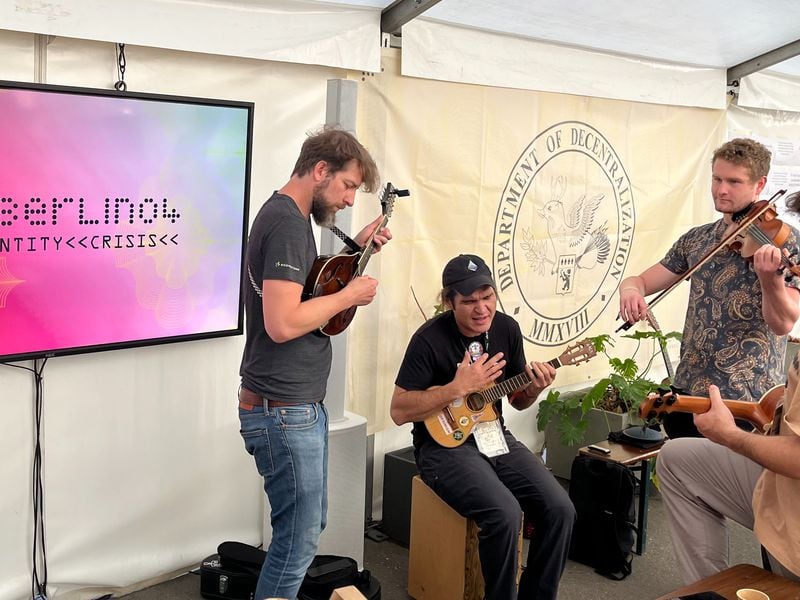Crypto Is 'Waking Up' to Real World Assets: Securitize CEO
05:25What Does State Inquiry Mean for Ethereum?01:15Solana Passes Ethereum on DEX Volume14:55Colorado Securities Commissioner Addresses Crypto Projects Who Raise Capital via Tokens02:12Three Major Ethereum Stories to Watch in 2024Berlin, Germany: A music-focused radio FM which allows songs to act as a transport vessel for hidden messages has emerged from EthBerlin 2024. CarnationFM was created by five hackers and a mentor as a defensive, decentralized and encrypted communication tool enabling private messaging that safeguards anonymity.
The project, which won the award for the Best Social Impact at EthBerlin 2024, is focused on creating real world use cases factoring in privacy in the aftermath of the Alexey Perstev verdict. Alexey Perstev, one of the co-founders of Tornado Cash, was sentenced to 64 months in prison in May.
The verdict rattled the decentralized community because it suggested that a coder could be held responsible for everything that happens using that code. Perstev was found guilty because his open-source mixer Tornado cash allowed North Korea’s infamous Lazarus group to launder millions in crypto.
Inspired by a historical revolution
The name CarnationFM: “Broadcast for a liberated future” carries a cultural historical undertone.
It comes from Portugal’s carnation revolution which occurred 50 years ago to end Europe’s longest-lasting dictatorship. The dictatorship was overthrown in a military coup which turned into a popular revolution. The decolonization of territories under Portugal’s control began and a carnation flower emerged as the revolution’s symbol. Civilians celebrated the end of the dictatorship by placing carnations in the muzzles of guns and on the uniforms of soldiers, as almost no shots were fired.
"The revolution started through the broadcasting of two specific songs through a radio broadcast: One in the evening of the 24rd of April 1974, marking the start, and the second one, twenty past midnight on April the 25th; confirming the action, initiating the revolution through the occupation of strategic points,” said MF, one of the co-creators seeking an acronym for anonymity. “That's why we picked carnation as the name.”
How it works
It’s decentralized because the music is broadcast through swarm, a decentralized data storage solution operating on the Ethereum blockchain.
“Anybody can listen to the music or the song, anybody can download it but only the people that hold a public key can actually see the encrypted message,” MF said.
The methodology publicly available on GitHub requires the key to be sent to the receiver beforehand along with the time the song will play. “It uses a radio as a passage where people can play music and upload music but the music files themselves have an underlying encryption which can hide any message up to 250 kilobytes a minute,” MF said.
What’s next
The creators are open to continue working on the product but are limited by resources, and are seeking support. “We are doing more research on how we can apply similar encryption on sound waves to take it to the next level, the analog way,” MF said. “Theoretically, you can encrypt Morse code allowing you to share even more information without downloading.” They are also exploring applying the same logic for videos which could be uploaded on YouTube or for a television broadcast.
See More: Napster CEO on Decentralization in the Music Industry
Edited by Parikshit Mishra.
